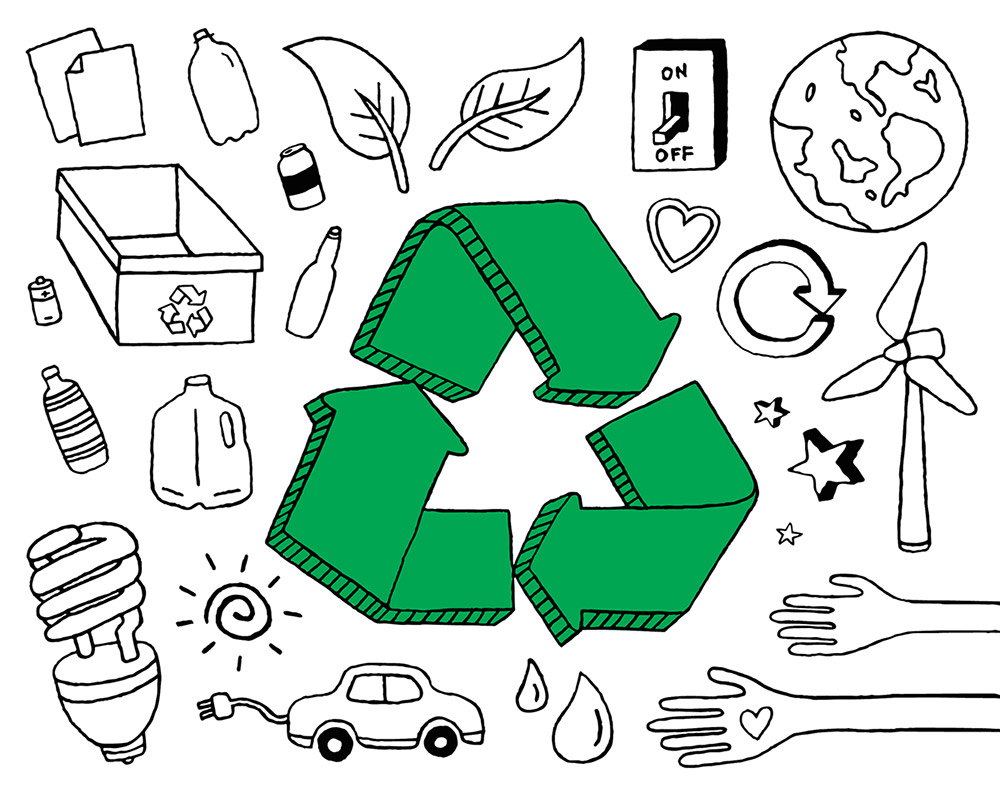
As consumer concerns regarding environmental sustainability increase, restaurant owners are growing more environmentally conscious and looking for ways that their business can go green.
The challenge for restaurateurs is in aligning social responsibility with their bottom line. Many sustainable practices, however, can end up saving you more money than you might think — while catering to an increasingly demanding customer base.
We’ve put together six ways that your restaurant can reduce its footprint, save you money and project the kind of image your customers want to support!
1. Food
Sustainable foods are foods such as organic, local and fair trade — described by Lorri Mealey from about.com as foods that “support the long-term maintenance of ecosystems and agriculture for future generations”.
Organic foods have a reputation as being more expensive than other foods; however, this isn’t always the case. There are many factors affecting the price of organic foods, such as geography, season and the food in question. These factors need to be examined before passing over organic food as a viable option for your restaurant.
Food that is local but not organic is actually often more cost-effective than non-local food. Buying sustainable food is not only often cheaper than regular food — but it also puts your money back into the local community.
2. Sourcing
Where you purchase your food is important. Purchasing your food from a local vendor or farmers’ market means that the trip to your restaurant has been (significantly) shorter and less gas has been spent on the journey. Knowing that you are concerned about investing in your own community can be extremely important to your customers.
3. Waste and water
There are many simple ways to reduce food waste and water in your restaurant. Using fish bones to make stock, re-using vegetable peels in stocks and sauces when possible, as well as watching portion sizes — these are some basic ways that food waste can be reduced drastically. Edible food can be donated to homeless shelters and what isn’t edible should be composted, when possible. To use less water, simply install flow restrictors on water faucets for customers and staff.
Looking for more tips to go green?
Download our free guide today and implement the best practices in keeping your restaurant environmentally friendly!
4. Lighting and energy
Lights that respond to motion-sensors save energy, as do energy efficient light bulbs. Ensuring that POS systems, lights and ovens are turned off at night are more simple ways to waste less. Finally, verifying seals on refrigeration systems can go a long way towards ensuring that energy (and money) aren’t wasted — “if [seals on refrigerators aren’t] kept clean and tight, warm air can seep in, making the fridge work harder to stay cool” explains starchefs.com.
5. Chairs, tables, and paper
Almost anything that you may use in your restaurant can be made from recyclable materials — wrapping for takeout or leftovers, disposable utensils, even chairs, and tables. Using things that can be washed and reused, such as cloth napkins and table cloths, is also significantly better for the environment than paper.
6. Cleaning Supplies
Changing to non-toxic cleaning supplies and biodegradable soap shows employees and guests that you care about them. Eco-friendly cleaning materials are generally safer and can be used as a selling point for your establishment. Customer and staff awareness play an integral role in making your restaurant more environmentally friendly; what better way to get their support than by proving that their well-being matters?
A Brighter Future
There is little doubt that environmentally-conscious practices are gaining popularity within the restaurant industry. The National Restaurant Association topped it’s 2014 and 2015 ‘What’s Hot’ lists with sustainable activities. Clearly, supporting one’s community and aligning personal philosophy with business practices is increasingly important.
As we move towards increased awareness and changes in practice, getting staff and customers aware and involved will help facilitate these activities. Finding new and creative ways to reduce food, energy, and water waste is a simple way to start saving money and being environmentally conscious.


News you care about. Tips you can use.
Everything your business needs to grow, delivered straight to your inbox.


